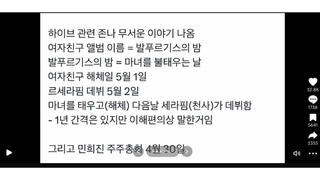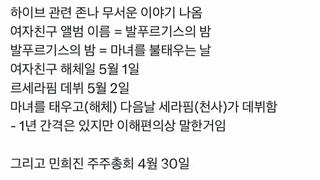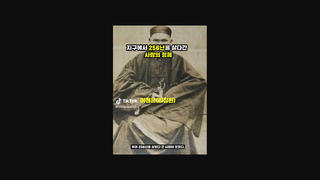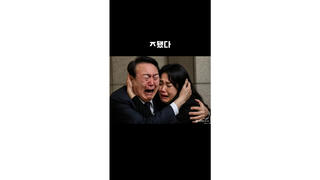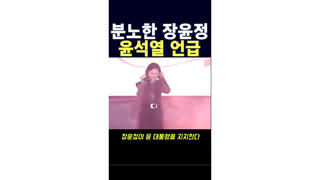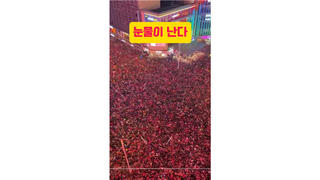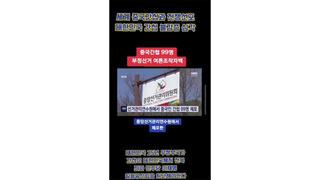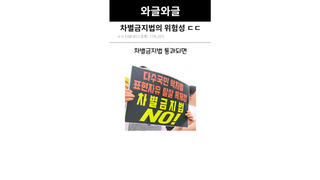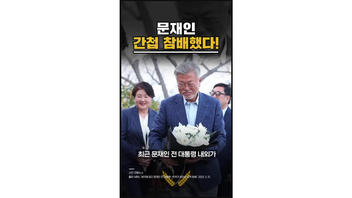
Was Korean-born German composer Isang Yun a North Korean spy? No, that's not true: This claim is a false accusation based on Yun's visit to North Korea four years prior to an illegal mass kidnapping affair orchestrated by South Korea's politically motivated, anti-communist administration.
The claim appeared in a TikTok video (archived here) published by the user @usn65gttfghh on April 13, 2023, with the caption, "Moon Jae-in paid respects to a spy." The video opened:
Recently, former President Moon Jae-in and his wife have paid their respects to the late composer Isang Yun and laid flowers at his grave in Tongyeong.
This is what the post looked like on TikTok at the time of writing:
(Source: TikTok screenshot taken on Wed May 31 09:47:05 2023 UTC)
In the video, a man narrates over photographs of Moon's appearance at Isang Yun's grave on March 31, 2023, on the first day of a music festival in Tongyeong, a port town in South Korea where Yun grew up and taught music before settling in Berlin.
The video proceeds to describe how the former First Lady Kim Jung-sook planted a camellia tree from Tongyeong next to Yun's headstone at his grave in Berlin's Gatow Landscape Cemetery in July 2017, on an official state visit for a G20 summit in Germany. The following year, Yun's remains were returned to Tongyeong at the request of the composer's family.
The narration in the video claims that the former first couple's "dedication" to Yun is because he was a spy for North Korea, insinuating communist sympathies often imposed on the former president by his right-wing critics.
Yun, a Korean-born German composer, was abducted in Germany in 1967 by operatives of the Korean Central Intelligence Agency and was handed life in prison over treason in what's known as the "East Berlin-North Korean spy ring affair." His sentence was later reduced to 10 years.
He was one of the hundreds of Korean students, artists, and intellectuals who were rounded up and investigated in Berlin. Yun had visited North Korea four years earlier to view a fresco painting, during a period when entering North Korea as a South Korean citizen was illegal.
He was released in 1969 after the West German government and a group of composers led by Igor Stravinsky exerted pressure on the South Korean government.
A 2007 report by the Development Committee for Clarifying the Past at the National Intelligence Service, a Korean Central Intelligence Agency successor, found that "the court imposed excessive espionage charges on those involved, and expanded and exaggerated the scope of the case and crimes."
The report also revealed that there were political motivations behind the operation in favor of the military regime of Park Chung-hee, which upheld a staunchly anti-communist agenda, and that the defendants were subject to physical abuse and torture during the trials.
Is Isang Yun, whom experts consider one of the most important living composers, the victim of an anti-communist conspiracy by the South Korean and German secret services?
Heinrich Hannover, Yun's lawyer at the time, wrote in Zeit in 1967.
In a delayed move for justice, Yun's surviving family members applied for his case to be heard again in a retrial, which was approved by Seoul High Court on May 17, 2023, on the grounds that his arrest and detention were unlawful.
The video also takes issue with his subsequent visit to North Korea in 1987, but upon his return to Germany, Yun took West German citizenship, which meant his visits were no longer illegal.
Some conservatives, obsessed with the 'espionage' charges of those involved in the affair like Isang Yun and Lee Eung-no, continue to question their actions after the incident
wrote Oh Jae-yeon, professor of history at Sungkyunkwan University, in an article about the affair.



